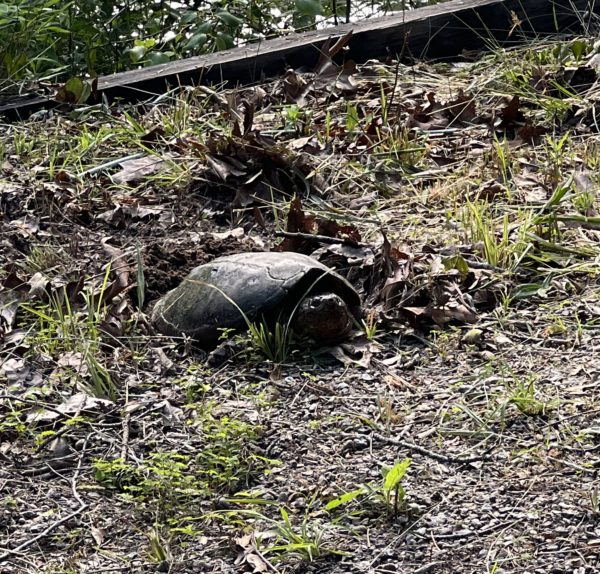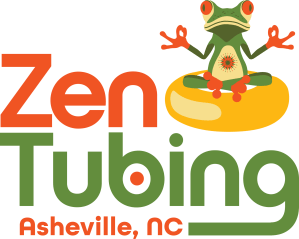WILDLIFE ALONG THE FRENCH BOARD RIVER – SNAPPING TURTLES

Turtles have a pretty famous method of laying their eggs: saltwater varieties can be seen emerging from the seashore, depositing their eggs into the sands of the beach, and then returning to the water, leaving their young to fend for themselves once hatched. In freshwater environments such as the French Broad River, it’s not much different. Eggs can be laid quite far from the water, with both the mother and the eventual offspring traveling several hundred yards to lay the eggs and then return after hatching. And for turtles, this can be quite a trip!
Last summer, in June of 2021, snapping turtle eggs were found at the Zen Tubing South location along the French Broad River. The Zen Team instantly got to work to protect the nest by roping off the area and naming it the “Turtle Nursery.” The best part is that snapping turtles are famous for their absolute independence from the day of their birth, hatching and then making their own way to water with no involvement from the parents beyond the laying of the eggs: all they need in terms of a “nursery” is protection from human pollution and garbage, for a healthy environment.
The snapping turtles presence can be like a litmus test for the areas environmental health. If they are laying their eggs in the area, then the area is healthy. And since snapping turtles are a freshwater species, they typically reside in lakes, ponds, and rivers such as the French Broad. As omnivores, snapping turtles will eat almost anything, but they enjoy eating dead plant matter and fish from the riverbed. In this way, they are natural trash disposals, using their scavenger tendencies to clean up waste in freshwater ecosystems. But if human garbage gets thrown into the mix, that could wreak havoc on the snapping turtle diet, and cause their populations to decline or move away. If we all keep doing our part to keep the river banks and river clean, then we will have more opportunities to discover and protect more wildlife along the French Broad River.
